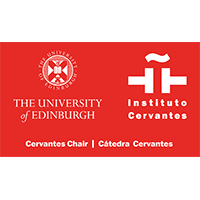Love and Revolution (Te estoy amando locamente) Spanish Film Festival 2023
Irene Brown | Radio Summerhall Arts
Love and Revolution (Te estoy amando locamente) Spanish Film Festival 2023

Post Franco Spain, and in particular the beautiful Andalusian city of Seville, is the setting for the directorial feature debut of Alejandro Marín. It is June 1977 and homosexuality is still illegal in Spain but a burgeoning movement to change that is the driver of this film.
The opening scene is of a neighbourhood wedding where the young pregnant bride’s bump is being cannily hidden for the snapping camera of Maca (Carmen Orellana). At the evening reception, after a few illicit sips of leftover drinks, young Miguel (Omar Banana), goes on the stage with the girls and dances like nobody’s watching. But they are. And his uninhibited moves draw the insult of ‘maricón’ (queer) from some young male guests, in turn inciting the ire of his mother Reme (Ana Wagener). Miguel’s otherwise quiet nature is overtaken by anger resulting in a punch up and a fearless parting obscene gesture to the catcallers.
Reme is the widow of a tailor who now works as a seamstress in her husband’s former shop. She harbours ambitions of Miguel or Miguelito to study law but he wants to be a singer. When, thanks to his friend Maca, he gets involved with a group of radical activists with the goal of setting up a gay liberation movement and having the Social Danger Act abolished, his life changes. Thanks to the liberal minded Padre Manolo (Jesús Carroza), the group has, before the Church’s hierarchy finds out, access to a room in the Archbishop’s Palace, where they plan their actions. When, through a series of unfortunate events, Miguel is arrested under the Act his pals are trying to have abolished, Reme finds that her love for her only son overrides her traditional views. When she gains no support from people in the establishment, she does a complete volte faceand joins the radicals to save her boy.
The mood lifts to comedic when an investigator visits Reme’s apartment ahead of Miguel’s trial to look at his room when Reme frantically conceals evidence of her late husband’s radical political past. While her new persona allows her the bravado to enter a hospital to steal records, the scene is taken to a level of incredulity that sits incongruously with the rest of the film.
Laced with Flamenco music, Love and Revolution is shot in the orangey brown tints of the fashion colours of the period. It shows, without focussing on, some of the brutality as well as electric shock treatment used at the time before homosexuality was decriminalised in 1979. Written by Alejandro Marín and Carmen Garrido Vacas, this is a sympathetic film to the gay cause.
Running time 110 mins
October 8th 6.00pm (French Institute Edinburgh)
October 26th 7.45pm (Macrobert Art Centre (Stirling)






















